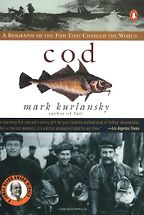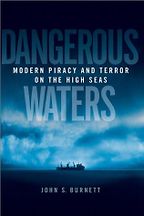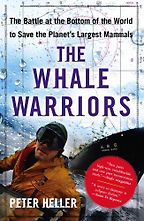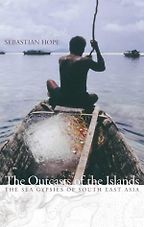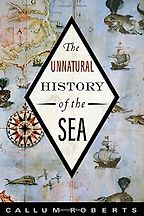First – you’ve written a book about the sea yourself.
Yes. It’s about the areas I cover in the five books I’ve chosen, but it also goes into other areas, like what’s happening with undersea mining, especially for oil and gas in the polar regions. It also goes into the vexed question of underwater cultural heritage like shipwrecks and their spoils, and sea rights, where people are claiming rights to the sea in North America and New Zealand.
Who does decide who gets the loot from shipwrecks?
It varies with different countries. I believe the law of salvage is still operating in Britain – if a shipwreck is discovered it has to be reported to the government and if they take over the goods they have to give the finder payment. What the UN is trying to do is to bring in more global policies so it’s not a matter of individual countries deciding, moving away from the law of salvage to protecting what we have under the sea for the benefit of humanity and, indeed, to leave the wrecks there so they don’t get disturbed and archaeologists can study them rather than breaking them up for the goods.
I love the title of your first book, Cod.
Yes, that’s a fascinating small book by Mark Kurlansky and it really is mainly about cod, but he makes it immensely interesting and he traces the human’s acquaintance with this fish back for a thousand years. Then he talks a lot about how amazingly abundant it was, especially off northern areas of Europe and Newfoundland, Canada and so on, and how when John Cabot went over there in 1497, he just had to put a bucket in the water and it filled up with cod. In the very same area in 1992 a moratorium was placed on cod fishing because the population was so low. It is still commercially dead and is on the way to being biologically dead.
Why is that? What on earth happened?
It was just amazingly overfished. It was fished before the time when there were strict regulations, and when Portugal and Spain came into those waters in the 1960s, 70s and 80s with the big trawlers and bottom trawlers, they just scooped them all up. Then when they were pushed out by Canada, the Canadian fishermen took over and fished the rest of them. It’s really a story about human greed and not taking the advice that they were fishing too hard.
That’s really depressing. I remember in the 1970s and 80s in Britain cod was just something you had, the cheapest fish you could eat. Now we go to the supermarket and spend £15 on a little fillet.
Yes, the population is severely depleted around your areas. Iceland is still pretty good because they’ve managed their fishing very well, but most other places have not.
This next one sounds exciting: Dangerous Waters: Modern Piracy and Terror on the High Seas.
Oh, yes. I’m really taken with the stories about what’s happening with pirates in the present day. Not because it’s a wild romantic tale with eye patches and things like that, but because it is such an enormous problem for contemporary fishing. What John Burnett does in this book is show us how extensive the problem is becoming. He did his research up to about 2002 and, because of the activity of the Somali pirates in the last few years, it is to some extent dated, but it still gives us a very interesting account of how pirates operate, why they operate, how difficult it is to counter them. He focuses on the Straits of Malacca, which border Indonesia and Malaysia, and he talks about how an oil tanker, 348 metres long, was taken by pirates, and not only was it robbed but it was completely taken over, hijacked: the crew put off, new papers made, name painted over and a pirate crew put on board, and it sailed off. At 348 metres long, people would have been able to see this happening from the shore!
Get the weekly Five Books newsletter
Why has there been such a surge recently?
Burnett talks about the development of syndicates, crime gangs operating on land who found that the ships in the Straits of Malacca were an easy target because the Indonesian navy was very lax in going after pirates. In fact, there are accounts of the Indonesian navy itself becoming involved in piracy when they were not going about their normal naval duties. So it became very difficult to counter. One reason I think might be applicable is that you just haven’t got as many naval ships trawling around the sea as you used to have in the Cold War. There’s not as much protection for maritime shipping, so if pirates can work out a way of getting on board, especially round Asia where the navies are very weak, they really can have free rein on what they do on the ship. What happened in the Straits of Malacca though, was that the Malaysians got strong on trying to go after pirates and coerced the Indonesians into cooperating. Once they got joint patrols in place things calmed down there. Not so easy in Somalia though.
More warriors here – The Whale Warriors.
This is really about a trip on the Farley Mowat, a boat that went to the Antarctic waters in order to raise awareness about the whaling that was going on there, mainly by Japan. The author, Peter Heller, was incredibly brave to go – it was a small boat, about a third the size of the Japanese boats. The Southern Ocean is a wild place, and they had fog, storms, ice and some near-death experiences on the journey. So first of all it’s a really exciting story about a sea voyage but, more importantly I think, it relates to what’s going on down there with the whales, the justification given by the whalers and the justification of the radical action given by the captain of the Farley Mowat, Paul Watson. While Heller, at times, seems to be presenting an even-handed account, it is clear that in the end he comes down against the whaling. There is also an absolutely magical section in the book where they’ve been pursuing the Japanese whalers in very difficult conditions and two huge humpback whales, about 45 feet long, come up on either side of the Farley Mowat and they make sounds. The crew has the impression that they are speaking to the boat. It’s as if the whales are saying thank you.
Amazing. That’s all the argument you need against whaling really, isn’t it?
Yes.
Tell me about the sea gypsies in Outcasts of the Islands.
The sea gypsies live on boats around Indonesia and Thailand but they can travel many miles away from the land so they’re not located in any specific land places and the boats are actually their homes, even though they may only be 30 feet long and eight feet wide. They keep everything they own on those boats and the whole family stays together and they express the belief that if they’re forced to go ashore then they’re going to get sick and die. What Sebastian Hope did was go and live on some of these boats in the 1990s and he describes their lifestyle – the different groups, languages, spiritual beliefs, but they all share a common activity, which is fishing. As is quite widely known now there are very destructive fishing processes happening in Asian waters with dynamite and cyanide being used and wrecking the fish population. So now the sea gypsies are really under threat and some have been forced to come ashore because they just can’t get enough fish to sustain their lives. It’s a very poignant tale about how these people who had a really strong culture for centuries have been forced away from their homes on the sea by the destructive practices of foreign fishers in their waters.
Are these things ongoing? Is anyone campaigning against it?
Well, curiously, the dynamite fishing has gone down a bit since Hope wrote his book because of 9/11 and dynamite being much harder to get, but there is an increase in the use of poisons like cyanide which can have the same devastating effect on the fish populations.
Five Books interviews are expensive to produce. If you're enjoying this interview, please support us by donating a small amount.
Surely you don’t want to eat fish that has been killed with cyanide?
No, well, people do. It is shocking, isn’t it?
Yes. Are we being sold this here or is it for local consumption?
It’s hard for me to answer for the UK because I’m not sure what fish is imported there. In Australia we do get fish from Malaysia and there could be cyanide fishing around there, yes. We have very strict examination of fish coming into the country and I’m sure the UK does too, but without these checks you might well be eating fish killed using cyanide, yes.
This last one is The Unnatural History of the Sea. ‘Unnatural’, how?
Ah, this is also about fishing like the Kurlansky book, but this book takes a really broad sweep, not just talking about one species. In fact, one of the points this book makes is that it’s dangerous to talk about one species in isolation because if you take out one species that might have ongoing effects on the habitat. You need to look at what’s happening around that population – you might get growth of algae, or a rise in population of jellyfish or something like that. That is certainly happening around the world. So he talks again about how large populations of fish existed around North America and Europe and how the belief developed that the supplies were inexhaustible, even up to the mid-20th century. He puts that picture well, but then he says that now we know that all the major commercial fish populations are in trouble, we’ve probably got until about 2050 to be harvesting wild fish. His idea about the way out is to develop a whole connected pattern of marine reserves so that fish have a chance to recover once they’ve been fished.
So there is hope! There is a way we could fish sustainably!
Yes. He thinks if we fish a certain area it should then become a reserve for a couple of decades.
Good idea. Why aren’t we doing it?
There are attempts to do it around some Pacific Islands. In fact, the US has put quite a lot of money into developing reserves and Australia is doing the same, but it is very difficult with large fish populations that travel a long way. The tuna goes from the US to the Mediterranean, or from Japan to Australia, and just setting up a reserve is not going to help those fish much because they don’t stay around in one place for very long.
Five Books aims to keep its book recommendations and interviews up to date. If you are the interviewee and would like to update your choice of books (or even just what you say about them) please email us at [email protected]
